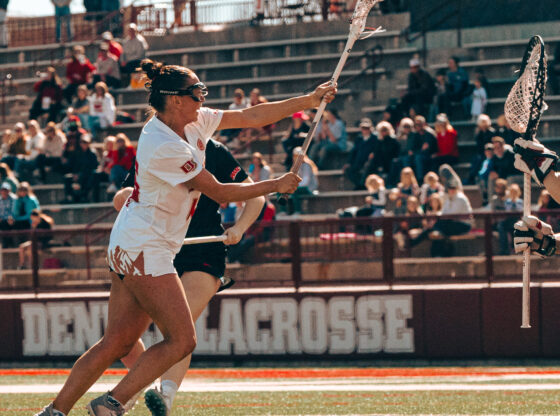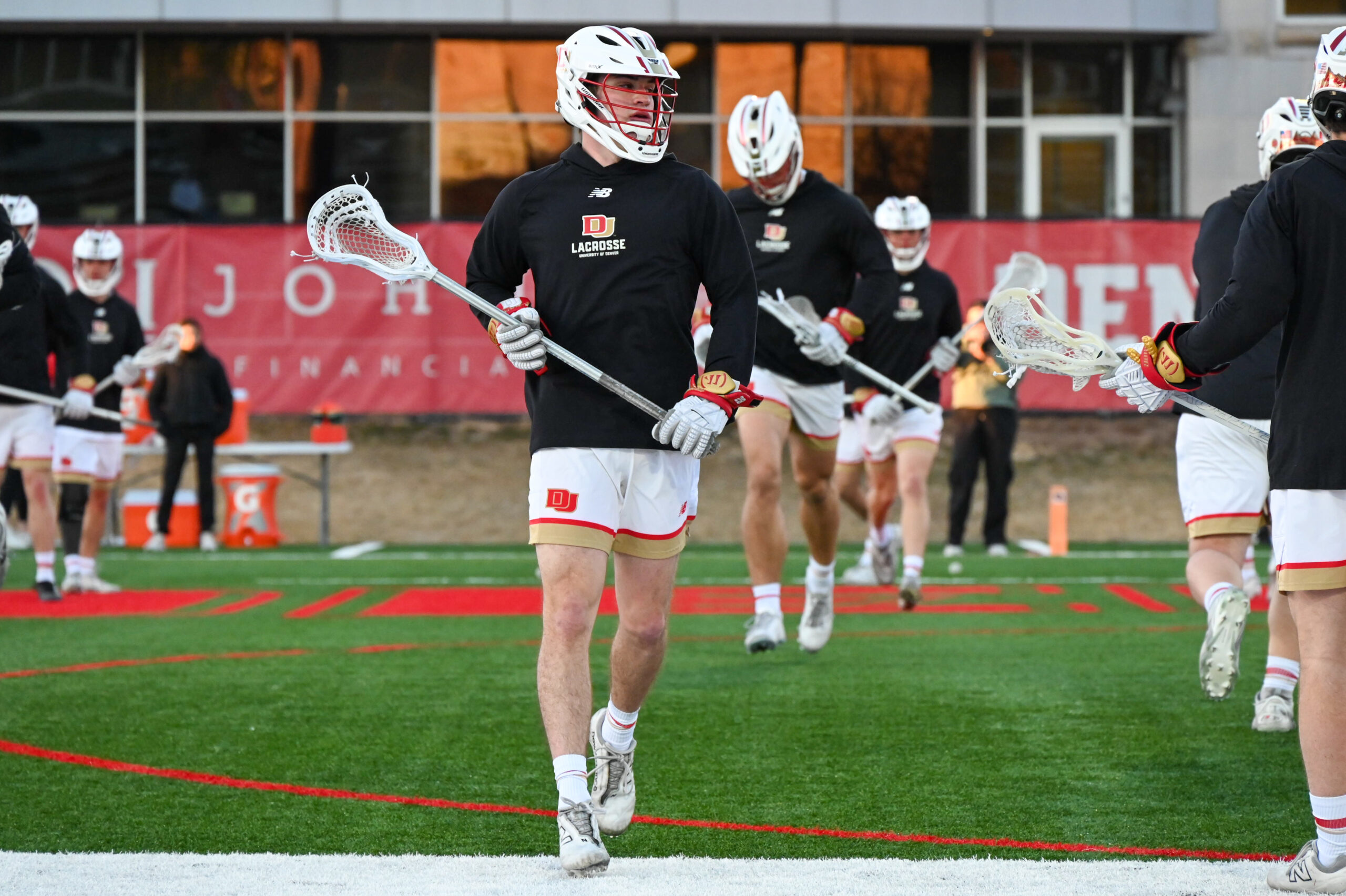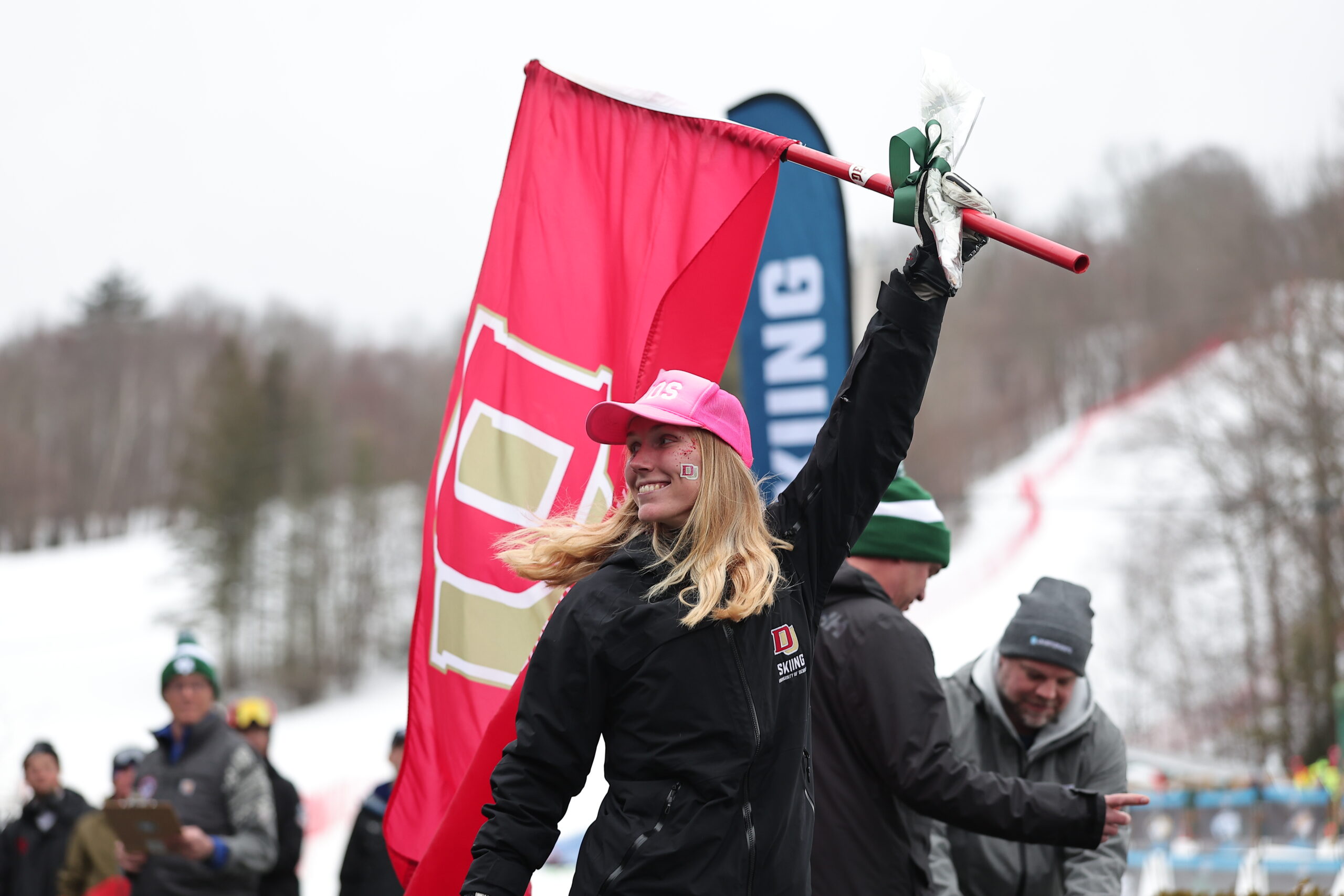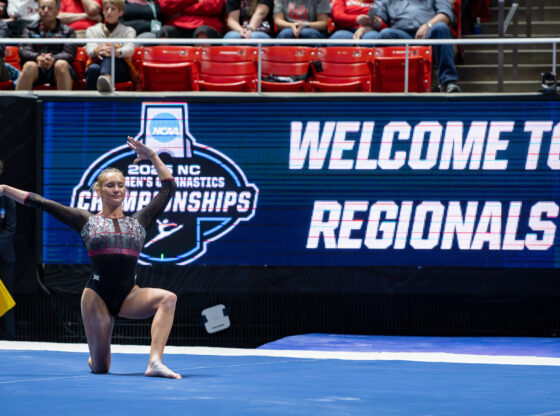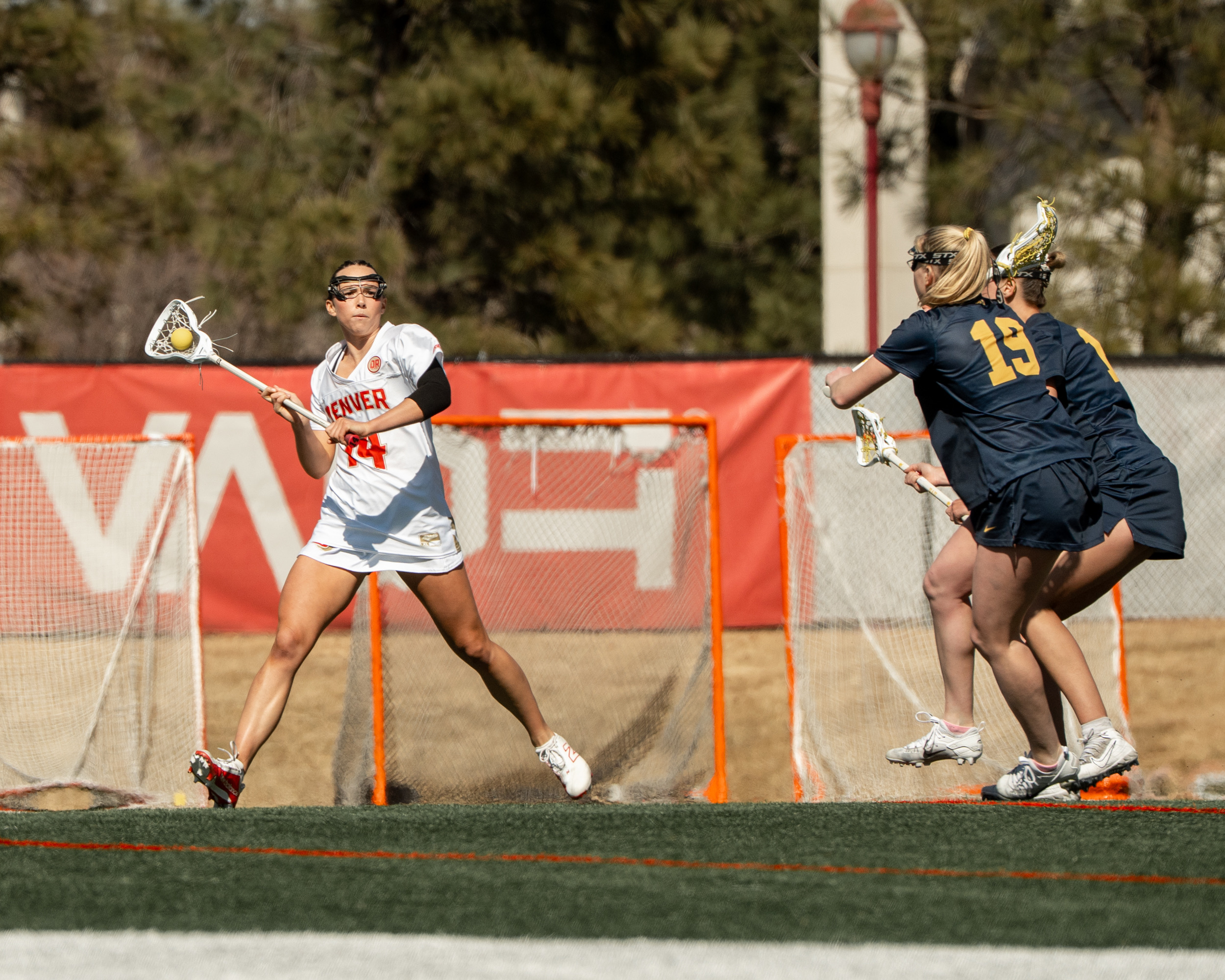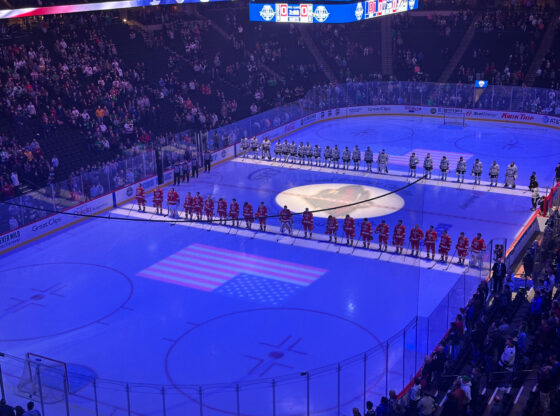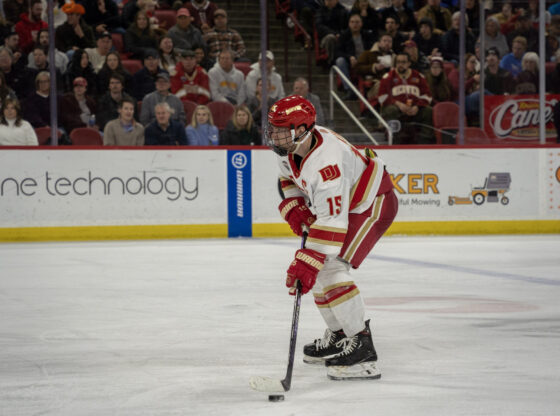 Photo by:
Photo by:
A committee of DU faculty hosted a meeting last Wednesday to discuss the NCAA re-certification of the school’s Division I athletics program and the process DU has taken so far in conducting its self-study.
The discussion was opened to the public and members of the conference were encouraged to voice their opinion on the subject.
Todd Rinehart, the assistant vice chancellor of enrollment and director of admissions, and Jo Calhoun, the associate provost, are the self-study co-chairs and led the meeting.
“The self-study process gives DU a systematic way to examine the operating principles, the individual teams, and day-to-day practices of the athletic department,” said Rinehart, When contacted by the Clarion prior to the meeting.
Every 10 years the NCAA reviews and re-certifies Division I athletic programs. In the 1999-2000 school year, Denver was certified as Division I school after previously being in Division II.
The opening of the Ritchie Center with its state-of-the-art sports venues enabled DU to catapult its teams to Division I. DU has continued to improve its facilities and the recently completed soccer stadium can host NCAA soccer playoffs.
The self-study is part of the re-certification process, said Calhoun.
According to Rinehart, the focus of the study will be on governance and compliance, academic integrity, and gender, diversity and student athlete well being.
Through the self-study and re-certification process the university also intends to increase the transparency of the athletics department and to bring it closer to the overall culture of the university, Rinehart said.
The written self-study has to be submitted to the NCAA on April 30.
According to the co-chairs, this document will consist of three parts, each headed by a non-athletic department faculty member who will oversee responses to multi-part questions that the NCAA re-certification guidelines pose.
The three sections include—Governments and Commitments to Rules Compliance, Academic Integrity and Gender Diversity and Student Athlete Wellness.
Vice Chancellor Craig Woody, who is in charge of the Governments and Commitments to Rules Compliance branch of the study, said at the meeting that there were 15 questions his group had to answer.
Michael Levine Clark, the Faculty Senate president, discussed the academic integrity aspect of the study.
He said academic standards for athletes include admission eligibility, graduation rate, missed classes and resources available to student athletes.
Lisa Matye Edwards, the director of advising, addressed gender issues, diversity in athletic programs and the safety of the student athlete.
According to Edwards, when DU was initially accepted as a Division I athletics program, there was a good plan set in place, but it was short on resources to take care of a student athletes well-being.
As Denver goes for re-certification, the members of the committee feel that the school is in an excellent position to provide for athletes well being, she said.
In October, an NCAA site-visit team will visit the campus to evaluate the self-study.
“The end result will be that the university will be either certified, certified under certain conditions, or not certified,” said Rinehart at the conclusion of DU’s presentation of the self-study effort.
Questions from the audience concerned the positive attributes of the school’s athletics program, Rinehart said that the student athlete graduation rate was one thing that the committee was proud of. He attributed this to a close cooperation between the administration and the athletics program.
Other questions related to the school’s compliance standards and student affiliation with athletics.
A discussion ensued regarding the athletic program’s current affiliation with the Sun Belt Conference.
“Our biggest issue right now is conference affiliation,” said Peg Bradley-Doppes, director of then Division of Athletics and Recreation, “It’s on the top of everyone’s mind. The SBC is a home for us right now as we search for a better fit.”
Doppes said DU must get better in sports such as basketball, because the school lacks major sports teams such as football and baseball, which could attract other conferences.
“DU is special to the SBC, because schools in the SBC don’t have sports like skiing, hockey and lacrosse,” said Doppes. “Conferences such as the WAC (Western Athletic Conference) and the Mountain West care only about core sports and we don’t have a football team.”
She added that there will be a continued ripple effect in change in Division I conference affiliation in years to come and that a move would make sense for DU, because student athletes would miss less class and feel more connected to campus without having to endure long road trips.
The proximity of a potential new conference is certainly key factor in a possible change in conference, however the most important concern is making the change permanent for Denver athletics.
“We have to get better and that takes time,” said Doppes. “This is a move that is not for the short term, we are talking about 50 years from now. We are trying to change the complexion of the university.”


